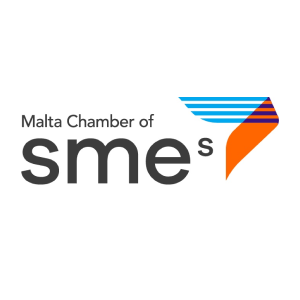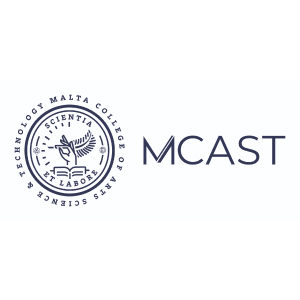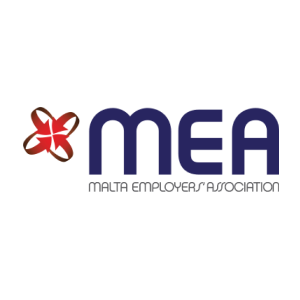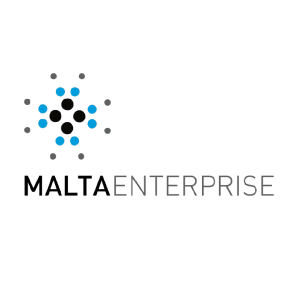The cofounders of the Foundation of Transport are Transport Malta, Chamber of SMEs, Malta Enterprise, Malta Employers’ Association and MCAST.
Other third parties are in discussion to sign a Memorandum Association. Transport is a challenging sector and undoubtedly a wide, unabridged and non-partisan consensus is direly needed for it to meet current and future challenges and thrive, in particular due to the fast approaching 2030 objectives for the adoption of greener modes of transport.

The Malta Chamber of SMEs (formerly GRTU – General Retailers and Traders Union – Association of General Retailers and Traders) – is Malta’s national organisation of independent private businesses. With over 7,000 members coming from 12,000 different business outlets, the SME Chamber represents the largest group of retailers of goods and services, contractors, distributors, wholesalers and independent technical and professional services.
The Malta Chamber of SMEs represents Maltese traders and retailers on various national fora including the Malta Council for Economic Development (MCESD), the Planning Authority, the Advisory Board of the National Organisation, the Fruit and Vegetables Board, the Commission for the Self Employed, the Council for Consumer Affairs, the Traffic Control Board, Malta Enterprise and the Malta Development Bank.
SME Chamber policies have always been geared towards the fostering of private venture and the advancement of small and medium-sized owner-managed enterprises. The SME Chamber believes that greater prosperity is within reach if commercial principles and practices rather than political ideology were to guide economic policy-making. The SME Chamber is a subsidiary and a partner of Green MT, WEEE Malta Limited, Malta Energy Limited and Business first.

Mission Statement
“To provide universally accessible vocational and professional education and training with an international dimension, responsive to the needs of the individual and the economy.”
Established in 2001, the Malta College of Arts, Science and Technology is the country’s leading vocational education and training institution. Six Institutes in Malta and the Gozo Campus, MCAST offers 180 full-time and over 300 part-time vocational courses ranging from certificates to Master’s degrees (MQF Level 1 to Level 7).
The six MCAST Institutes namely the Institute of Applied Sciences, the Institute for the Creative Arts, the Institute of Engineering and Transport, the Institute of Business Management and Commerce, the Institute of Community Services, the Institute of Information and Communication Technology and the Gozo Campus provide all the technical and professional expertise towards the delivery of the programmes at MCAST. They also maintain the aim of driving forward all the areas of study under their respective responsibility. This corporate structure enables focused strategies, which address the specific needs of students at each level while maintaining a healthy dialogue with all interested stakeholders in order to provide the best programmes for the needs of the local economy and society.

The role of the employer carries with it the burden of many responsibilities emanating from the employer-worker relationships within the company. These responsibilities entail critically sensitive elements such as employee relations, relations with government bodies and interpretation of legislation.
Regardless of whether the employer is a large corporation or a small office business unless these elements are handled competently and professionally, they can pose a serious threat of employee unrest, with its negative impact on the Company’s performance and reputation.
In the volatile arenas of industrial relations and social policy, an employer requires immediate expert advice and effective action. It is clear that there is much advantage in fostering an organised unity between all employees. Through this unity comes individual strength.
This is the raison d’être of the Malta Employers’ Association.

Malta Enterprise is the country’s economic development agency, tasked with attracting new foreign direct investment as well as facilitating the growth of existing operations.
In operation under various guises since the 1950s, which is almost since the beginning of Malta’s industrial development, the Corporation contains within it a great deal of accumulated experience in the field. Furthermore, it acts as an adviser to government on economic policy due to its close and constant interaction with the main economic players in the country. Malta Enterprise is also the national contact point for the Enterprise Europe Network through which companies based in Malta can develop links with counterparts in over 60 other countries.
Within the organization, one may find a wide variety of skills and backgrounds. This facilitates interaction with investors from all sectors, ensuring that specific requirements are understood and met.
The long term presence of an investor in the country is a priority for Malta Enterprise. We therefore work constantly with our clients to find solutions to any issues they may be facing and to help them adapt to changing circumstances. This has resulted in symbiotic relationships being maintained for decades, for the benefit of all concerned.

The Authority’s mission is to promote and develop the transport sector in Malta by means of proper regulation and by promotion and development of related services, businesses and other interests both locally and internationally.
Objectives and Policies
The Government shall endeavour, through the Authority, to achieve the following main objectives and policies:
Transport Malta is committed to continually improve on the services it offers. The Authority works closely with the Better Regulation Unit and the Commissioner for Simplification and Reduction of Bureaucracy, to ensure that Better Regulation principles and procedures are applied consistently throughout the Authority.
